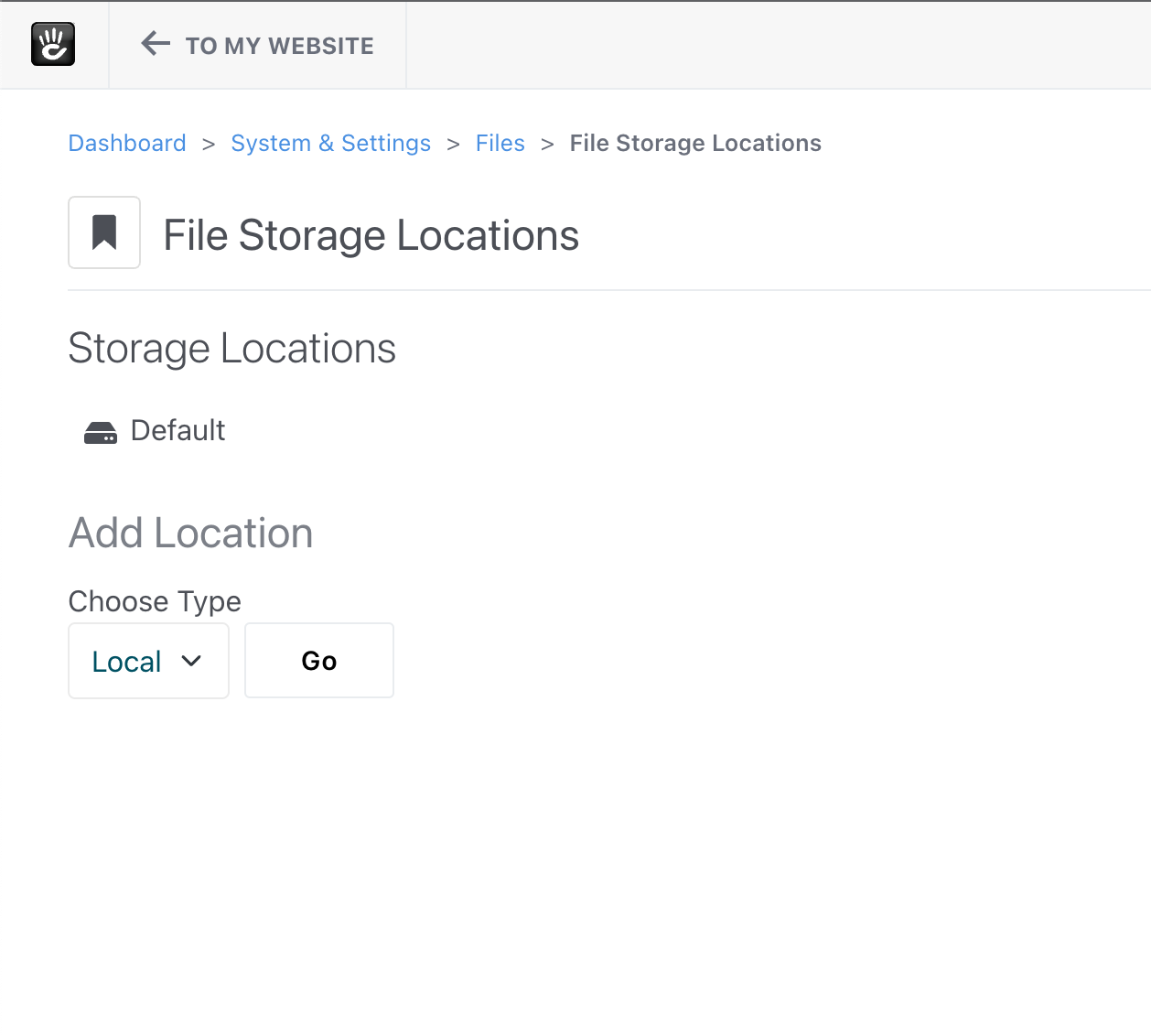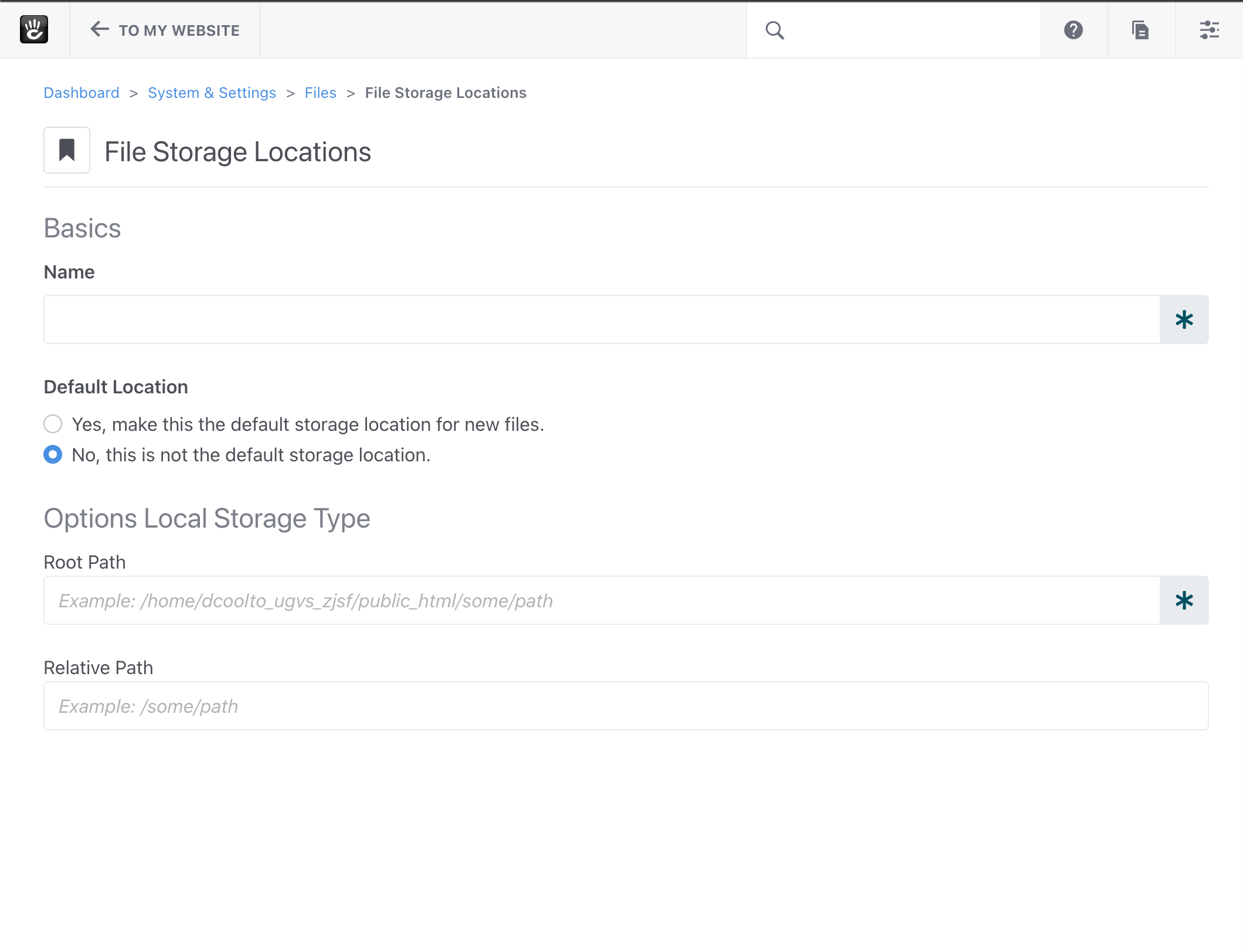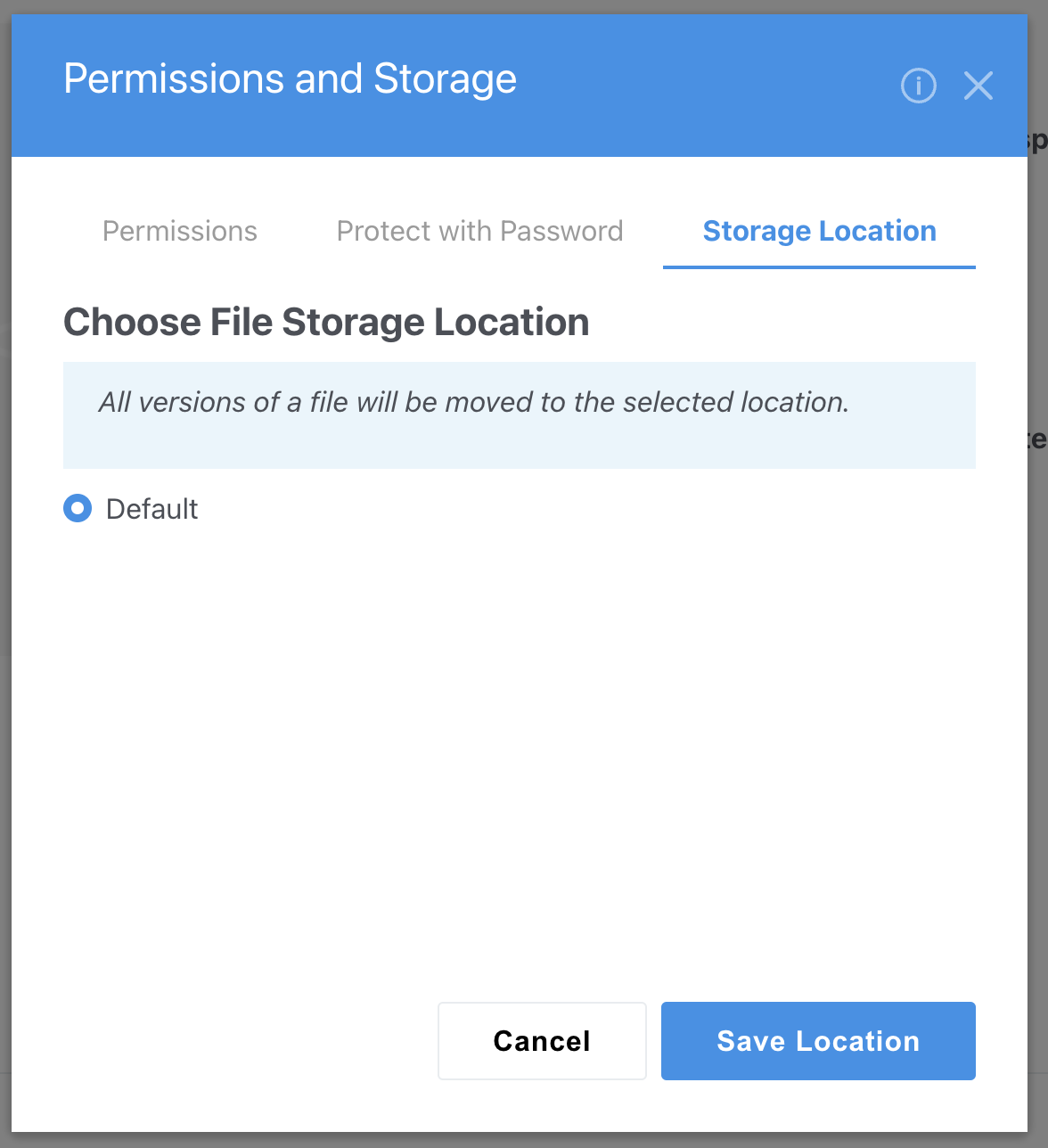File Storage Locations
Remote Storage Locations
Concrete CMS allows defining multiple file storage locations via the Dashboard. The default type is "Local," a directory on the same server. Additional types, like Amazon S3, can be added through packages.


A registered file storage location can be set as default, with files added to the file manager stored there by default. File-by-file storage location selection is also available.

Creating a File Storage Location Type
To create a custom File Storage Location type:
Package Controller Creation
Start with a standard package controller:
<?php
namespace Concrete\Package\CustomStorage;
defined('C5_EXECUTE') or die(_('Access Denied.'));
use \Concrete\Core\Package\Package;
class Controller extends Package
{
protected $pkgHandle = 'custom_storage';
protected $appVersionRequired = '5.7.5RC1';
protected $pkgVersion = '1.0';
public function getPackageDescription()
{
return t('A custom file storage location type.');
}
public function getPackageName()
{
return t('Custom Storage');
}
}
Installing File Storage Location Type
Install the custom type during package installation:
public function install()
{
$pkg = parent::install();
\Concrete\Core\File\StorageLocation\Type\Type::add('type_foo', 'Custom Type', $pkg);
}
To manage class loading, include:
protected $pkgAutoloaderMapCoreExtensions = true;
Custom Configuration Class
Create a custom configuration class implementing ConfigurationInterface:
<?php
namespace Concrete\Package\CustomStorage\File\StorageLocation\Configuration;
use \Concrete\Core\File\StorageLocation\Configuration\ConfigurationInterface;
use \Concrete\Core\File\StorageLocation\Configuration\Configuration;
class TypeFooConfiguration extends Configuration implements ConfigurationInterface
{
// Implement required methods from ConfigurationInterface
}
Custom Form for File Storage Location
Create a custom form file at packages/your_package/elements/storage_location_types/your_handle.php for configuration options.
Completing the Process
Add the custom file storage location type, create the configuration object it uses, and make a custom options page for configuration in the Dashboard. External libraries can be integrated for actual storage location interactions.
For reference, examine the LocalConfiguration object for local file system storage management.